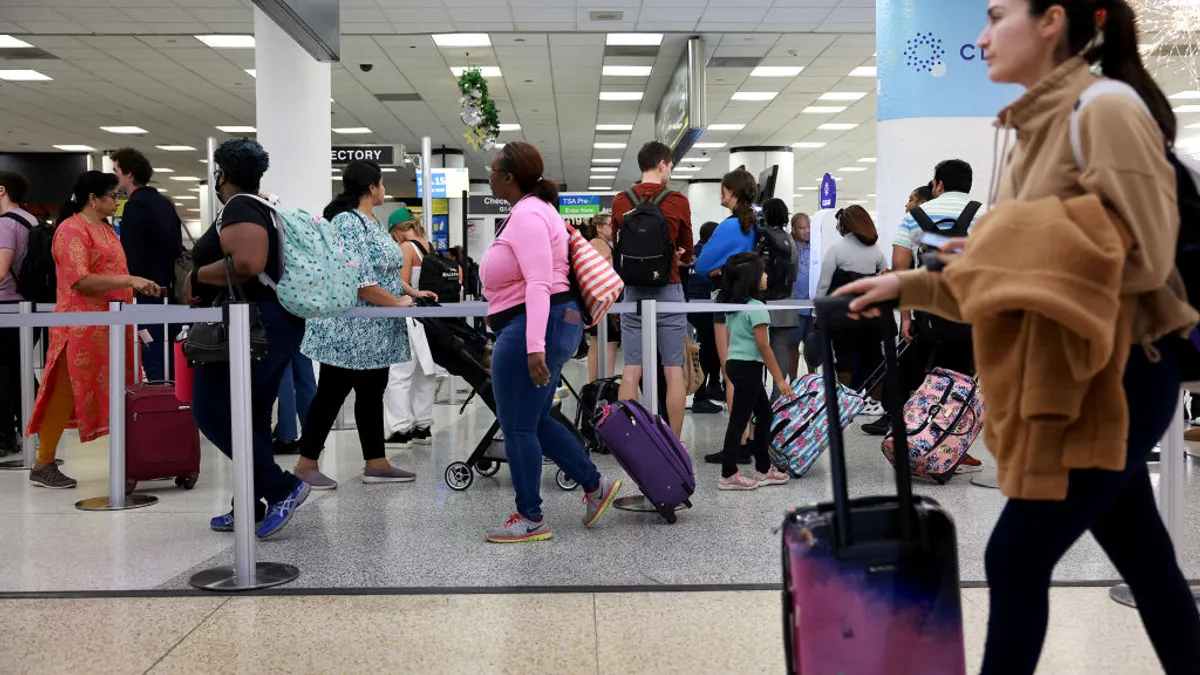Dive Brief:
- Employers’ sustainability goals have driven many companies to keep travel budgets smaller than usual, according to Deloitte data released Tuesday.
- Corporate travel spend is on the rise but remains far below pre-pandemic levels, the firm said. A variety of factors are at play, including advances in technology that make travel less necessary. But sustainability appears to be a key component of that decision-making. A third of U.S. employers surveyed said they need to reduce travel per employee by more than 20% by 2030 to meet sustainability targets.
- “Travel, in general, attracts attention as a significant contributor to carbon emissions,” Deloitte said. And while sustainable providers exist, they tend to be more expensive.
Dive Insight:
Employers’ collective focus on environmental, social and governance principles is here to stay, employment law firm Seyfarth Shaw concluded in a report last month.
In addition to pressure from boards and investors, the firm said employers are facing consumer scrutiny and employee demands as well, especially around sustainability. “Climate and the environment remain central to the discussion,” the report authors wrote.
Still, employers will have to balance those demands with the benefits travel provides for some workers. Some are setting strategic priorities: Deloitte respondents, for example, said travel for clients currently outweighs travel for team building and internal meetings.
Some of the onus sits with suppliers, the firm said. Those vendors that can “take a long-term view of their relationships with travel buyers and communicate with them about their sustainability progress should be better poised to navigate ongoing shifts in travel priorities,” said Mike Daher, vice chair, Deloitte LLP and U.S. transportation, hospitality and services non-attest leader, in a statement announcing the findings.













![Salesforce AI's CEO sits onstage across from Cristina Criddle. Screens that say Human[X] hang behind them.](https://imgproxy.divecdn.com/4XVfO8mNsslv7_axsVip9IU74iKpLWgiY3616VXH4ow/g:nowe:0:104/c:1024:578/rs:fill:600:338:1/Z3M6Ly9kaXZlc2l0ZS1zdG9yYWdlL2RpdmVpbWFnZS9HZXR0eUltYWdlcy0yMjA0NjUxNDM0LmpwZw==.webp)